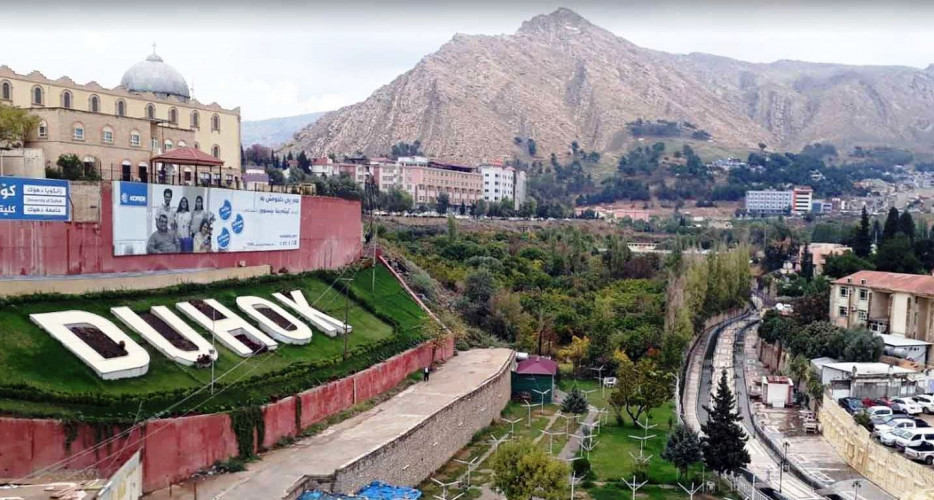
Peregraf– Amar Aziz
Like many women in Duhok, Zulaikha was forced to give up claims to her inheritance out of fear of what her family might do if she insisted on her legitimate and legal rights.
"We have been victims of tradition and this problem will remain and will not be easily solved," Zulaikha told Peregraf, asking that she be identified using a pseudonym.
The 40-year-old, who is married and lives in Duhok, said that she could have really used the money, but was intimidated into relinquishing her claim, the benefits of which then went to her brothers.
"Because of shame from the community and tradition, I told them I would give up my inheritance, but now I regret it," she said, adding the she made the decision several years ago before her father passed away.
"We are four sisters and five brothers. My sisters had a good financial situation and they didn't want it, but I needed it," she said of her inheritance.
"But because it is compulsory to do so, I rejected it. I'm sure if I had received it, my brothers wouldn’t have liked it and there would have been problems."
Under Islamic tradition and Iraq’s Status Act No. 188 of 1959, which applies both to federal areas and the Kurdistan Region, women are entitled to receive inheritance, but only half the amount of their male relatives. Agricultural land is divided equally under the law.
Their claim is legally protected unless they decide to relinquish it.
In the Kurdistan Region, Law Number 15 of 2008 enables the owner of an inheritance to decide to distribute property equally to their male and female heirs.
Haifa Dosky, an activist and member of the Women's Union-Duhok branch, told Peregraf that an estimated 80 percent of women in the governorate decide to relinquish their claims for fear of upsetting their families.
Of those who insist on asserting their rights, between 10 and 50 percent are cut off by their families or face other problems, Dosky added, giving the example of one woman whose mother refused to speak to her for twelve years.
She said that families will also use legal tricks to deprive women of their inheritance, including by taking all their money and assets and putting it in the name of a brother while the father is still alive.
Dosky explained that families in Duhok justify their actions by arguing that women should not be taking their families’ wealth and giving it to their husbands.
In one case she knew of involving a large family of five brothers and seven sisters, the women had been warned by their male relatives that they should give up their claims, saying that the women’s husbands should be responsible for taking care of them.
"I know dozens of women who have rejected their inheritance as I did," Zulaikha said. "I know that I could provide for my family's expenses and it is halal, but people say ‘why should we give inheritance to our girls, when they will just give it to their husbands.’"
Karozh Ismail, a lawyer in Duhok, said that the majority of women in the governorate are denied their legal rights because of patriarchal attitudes and that those who do resist often experience significant backlash.
"There have been dozens of cases where brothers and families have cut off contact with their sisters and daughters, just for demanding their legitimate rights," Ismail said.
She told Peregraf about one case where the inheritance for seven sisters and two brothers was a piece of land worth $700,000, but that all the women had been denied their claim.
"Very few cases related to inheritance will be brought to court because [inheritance] is distributed within families and tribes according to tradition and the wealth of the dead person," Ismail said.
Others agreed that women have little recourse in trying to protect their claims.
"We can say that 70 percent of women in Duhok do not receive their inheritance for the sake of their parents, brothers, and families because they are not ready to lose contact with their families just for some money," Jamila Mohammed, a member of the Duhok Provincial Council, told Peregraf.
Mohammed added that no women have brought complaints or cases related to inheritance before the Women’s Affairs Committee of the council.
"Duhok women do not ask for their rights in this regard and, if a problem occurs, they are going to fix it through tradition and the tribal way," she added.
"Women are afraid of the community, their families, and those around them and give up on their rights because of that. Some believe that when they get married, their spouses will provide for all their needs and they don't have to take money from their families," she said, before urging women not to relinquish what is lawfully theirs.
Said Kavin, another woman from Duhok, said that her decision to claim her inheritance had indeed caused problems with her family.
"I became cold in my relationship with my mother and sisters and they don't ask about my life, even when we talk on the phone sometimes." Kavin said, who is 35-years-old and has five children.
Her husband is a wage earner and they needed the money from the inheritance. Out of four sisters in her family, two claimed inheritance and two turned it down.
"They joke that I'm committing a crime against them and they look at me with a strange eye," she added, referring to her mother and sisters who gave up the claim.
"A woman receiving inheritance is halal by god, but, unfortunately in Duhok, it is like it is a crime or a stolen thing if a woman receives an inheritance," she continued.
"Why does no one talk about it when a man takes his inheritance? Why does everyone talk about women when it is her legitimate and legal right?"